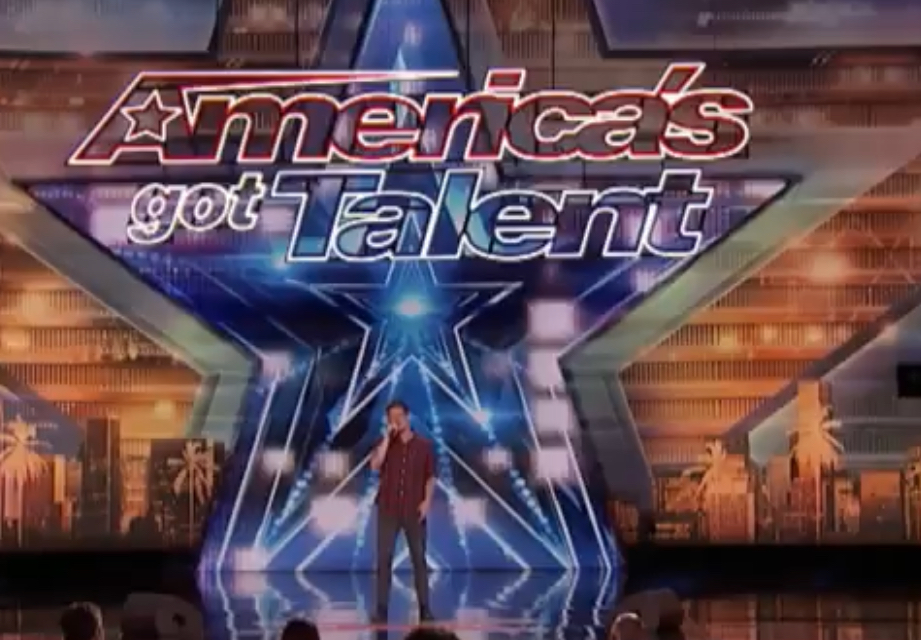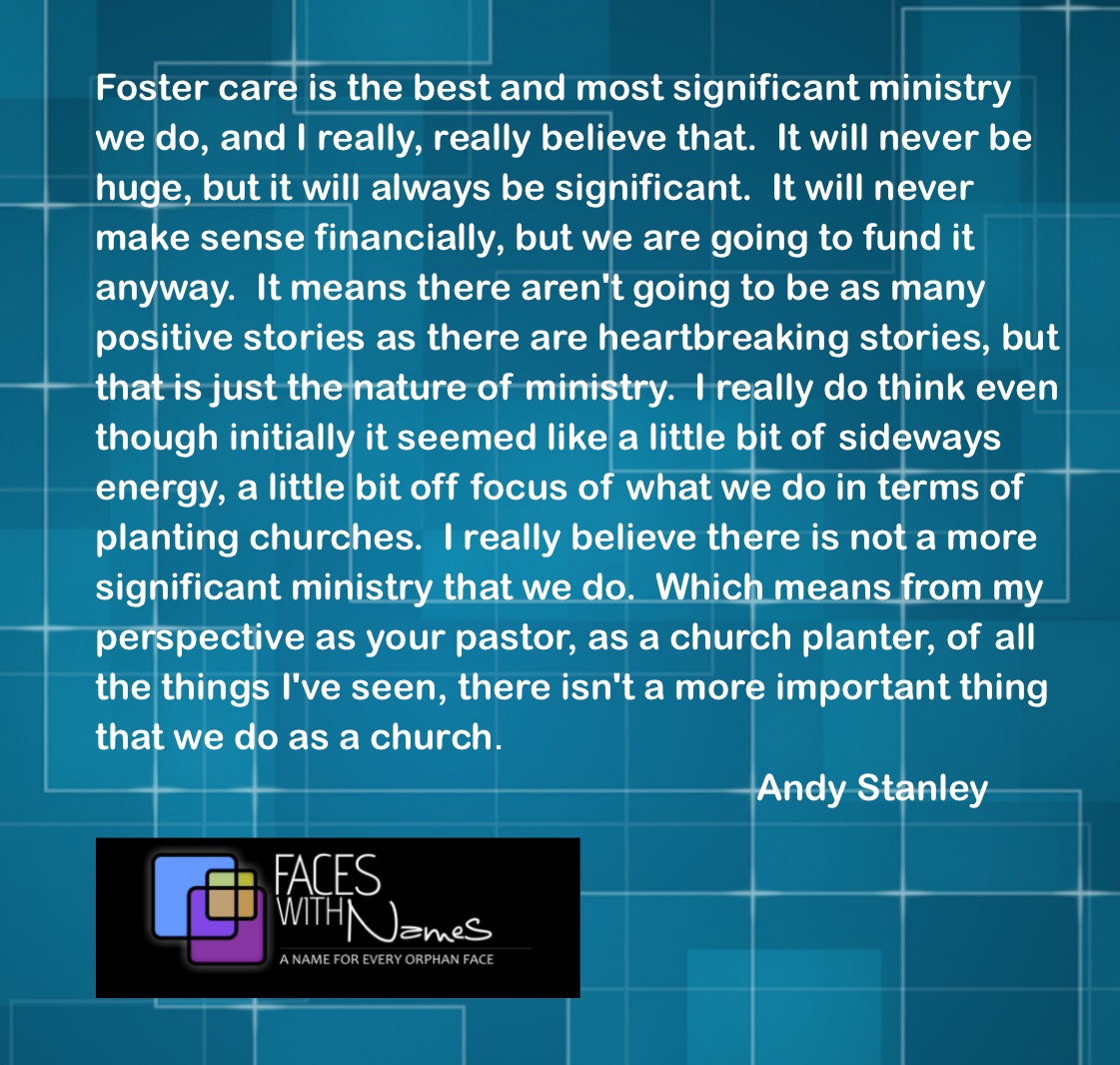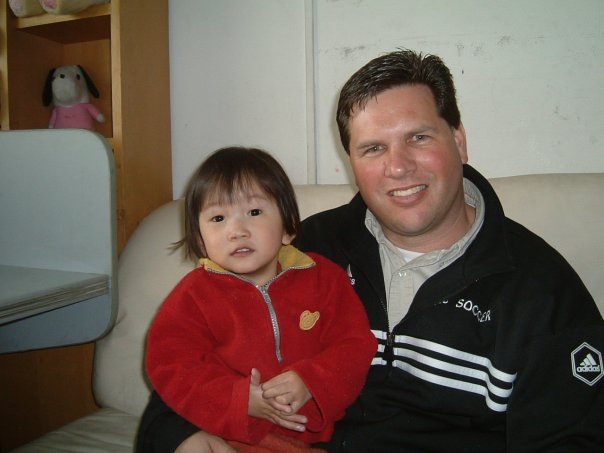Simon Cowell is best known for his blunt and often controversial statements to contestants over the year’s as a judge on a variety of shows such as, American Idol, The X Factor and Britain’s and America’s Got Talent.
His famous line and the title of his book, “I don’t mean to be rude, but…”, is often followed by harsh and cutting insults to contestants about their abilities, or lack thereof.
So how is a no-nonsense and harsh personality who is unphased by the crowds opinion, moved to tears?
It all started this past June when a singer and adoptive dad named, Michael Ketterer, stood on the stage to audition for America’s Got Talent. He not only looked very nervous, he admitted he was very nervous.
As Simon Cowell began to address Ketterer, he asked, what is the ambition or dream for you being here?
Ketterer responded,
“My family is the reason why I am here. My wife and my six children. One of the things that happens, especially because my children came out of foster care, when you’re surviving, you can’t dream. That has been one of the most rewarding things is providing them with a home and a safe environment where they are free to dream. I am here because I want to show that if their dad can live out his dreams, there is nothing impossible for them.”
And so with what appeared to be a few prayers under his breath, Ketterer began a moving rendition of the Bee Gees, “To Love Somebody,” where the emotional words of the song rang through to the audience and judges:

You don’t know what it’s like, baby
You don’t know what it’s like
To love somebody
To love somebody
The way I love you
And with what Simon Cowell explained as a real and unexpected performance, he gave Ketterer one of only five golden buttons of the season, pushing him directly through to the live performances.
This golden moment also thrust Micheal and Ivey Ketterer, and their six children into the spotlight of what it means to be an adoptive family. They immediately became a beacon of light in the orphan care world with everyone cheering them on and celebrating their success.
But this spotlight, although important for all of us in the orphan care world who want to bring awareness and advocacy to orphans and vulnerable children, speaks even louder to a world who is amazed at this singer and his wife’s selflessness.
With great anticipation, Ketterer finished out the show of the first live performances and the quarterfinal elimination round. He did not disappoint with another moving performance by James Bay’s, “Us.” A few words from the song:

Tell me how to be in this world
Tell me how to breathe in and feel no hurt
Tell me how could I believe in something
I believe in us
As the song concluded and the judges were to speak, Simon Cowell was asking for a pass. But the host, Tyra Banks pressed him and urged him to share, even in his emotions.
On live national television, this perceived, hard-hearted guy shared with tears in his eyes and a crack in his voice. This is what Simon Cowell said,
“As a dad, I can’t imagine doing what you’ve done, and the fact that you’re on this show and you really need this. You’re a really, really special guy,”
I think the most important and fascinating words Cowell then spoke was this. He said to Ketterer, “There’s just something about you.”
Any parent understands the challenges and frustrations of parenting. Kids are a lot of work. But there is a vivid reality of what it must be like parenting children from hard places and devastating circumstances.
It is one thing to be the biological parent of children who might have challenging personalities or special needs. But to willingly choose children with those same circumstances when you don’t have to, now that will get people’s attention. And in this situation, even make Simon Cowell cry.

The selflessness of this father who is singing on America’s Got Talent, to give hope and dreams to his adoptive sons, resonates with a lost world.
James 1:27 tells us, “Religion that God our Father accepts as pure and faultless is this: to look after orphans and widows in their distress and to keep oneself from being polluted by the world.”
So when the world expects religion to look judgmental, self-seeking and self-promoting, God says there is an answer: caring for those who can do nothing for you and can give nothing back to you. Who can argue with religion like this?
Beyond the impact Ketterer has had on Simon Cowell, I read this response on a YouTube conversation board which said,
“I’m not religious myself, but when I see this man, I see the good religion can do. He is the walking embodiment of the best of Christianity – generosity, goodness, kindness.
Truly hoping more people will express their Christianity like this man does with his family, this was just beautiful.”
When the love of the gospel becomes so evident through our care for the most vulnerable, it creates a dynamic where the lost desire to know about a God who will love them in the same way.
As followers of Jesus, as The Church, we have the opportunity to replicate this unselfish, gospel-centered care for the most vulnerable. God, in his infinite wisdom, made no mistake. He took a word the world sees as negative and gave us the opportunity to make it pure and faultless.
So if I may borrow a line from Simon Cowell, “I don’t mean to be rude, but …”,
It’s time for pastor’s, churches and believers to stop reading James 1:27 as an option. A lost and dying world is watching on whether we are willing to take up our cross daily to care for the most vulnerable.
As a whole, our performance as, The Church, stinks. It would receive the harshest Simon Cowell review and criticism. We can do better Church, and it is so much easier to start with the support of our pastors!
So what could make Simon Cowell cry? The very life of an unselfish dad who is living out a pure and faultless religion, called, The Gospel.
Eric Mills
President – Faces With Names www.faceswithnames.org
National Pastoral Director for Orphan Sunday & Stand Sunday www.orphansunday.com





